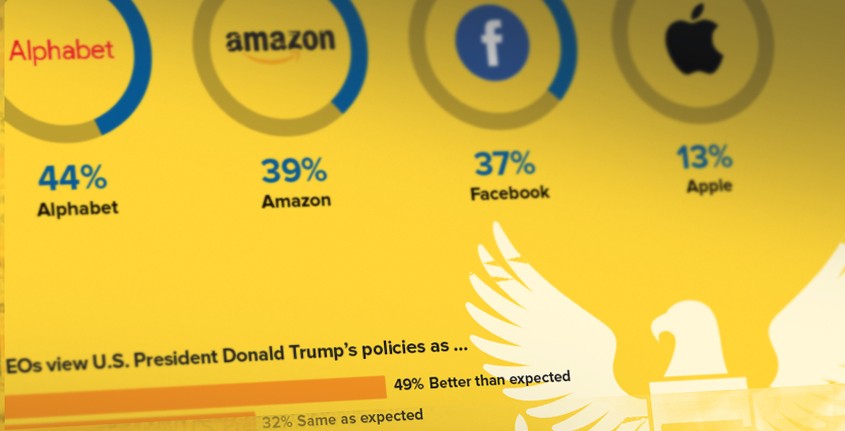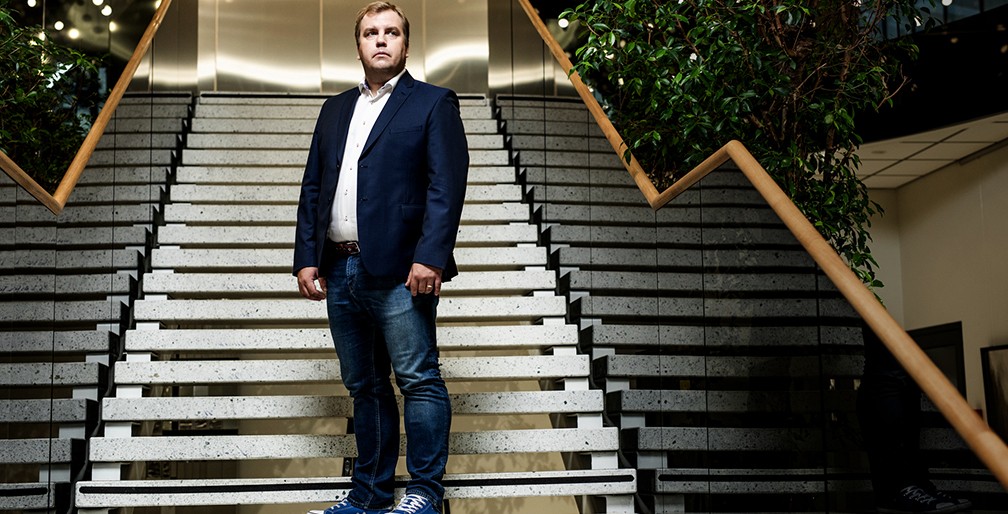SAP Ariba’s Push for Transparency
Barry Padgett could be resting easy. The company he leads, SAP Ariba, is growing at a pace that would make most executives jealous. The 22-year-old global procurement platform, a pioneer in software as a service, connects more than 3.4 million buyers and suppliers who trade more than $2 trillion in goods and services each year. A new organization joins the network every 60 seconds, Mr. Padgett says. “Whether you look at employee count, revenue growth, bookings or sheer transactional volume, we are experiencing fabulous growth.”
“If you are not thinking about how to tap into the rich ecosystem of innovators around the world to drive more value for your customer, then you are either going to go out of business or be acquired.” —Barry Padgett
But Mr. Padgett did not take the role as president of the company in January to simply oversee the status quo. He wants to future-proof SAP Ariba’s cloud-based procurement platform through new tech like blockchain and artificial intelligence (AI). And he wants the company, a wholly owned subsidiary of SAP SE, to make supply chains more transparent from the standpoint of ethical and environmental practices, enabling customers to “marry business and purpose together.”
So how will SAP Ariba—a company that conducts roughly twice as much transaction volume as Alibaba, Amazon and eBay combined—overhaul itself without undermining robust growth? Mr. Padgett believes it comes down to two things: a focus on customer experience and the ability to “harness the creative genius that exists outside the company.” Those are the two signposts guiding his plans for transformation.
“We’re long past the idea of companies believing they can deliver every piece of functionality and great innovation within their own four walls,” he says. “By creating a rich ecosystem of partners, we can generate enormous value for our customers.”
SAP Ariba’s big-picture strategic goal is to increase transparency across the supply chain and enable better performance-tracking, Mr. Padgett says. “When you look at the scale we have, and you add the technology available to us now—whether it’s blockchain to drive provenance and authenticity in the supply chain, or AI to create smarter processes in purchasing and eliminate risk—we can have immense impact very quickly.”
Staying the Strategic Course
Mr. Padgett admits it is not easy to drive significant change in an organization as vast and global as SAP Ariba, which operates in more than 190 countries. “Supply chains are getting more global and more complex as more and more channels are opened and more and more commerce becomes digitized,” he says. Investing in new technologies is capital- and resource-intensive—but necessary.
The integration of AI, machine learning, deep neural networks and blockchain solutions into SAP Ariba’s platform is essential because the technologies can create a more efficient customer experience, Mr. Padgett says. “We are trying to future-proof the business to make sure our customers continue to receive value over the years ahead.”
Some might balk at the push for expensive transformation initiatives when the present seems rosy. But Mr. Padgett has proven he is not afraid to take risks when confident about his business strategy. He came to SAP SE in 2014 when the enterprise software company acquired Concur, the expense management firm. He began his career at Concur in 1998 as a software engineer and eventually became chief product officer.
When Concur transitioned from selling software on CD-ROMs to providing cloud-based services, it was rocky, Mr. Padgett says. The company was nearly delisted in the early 2000s and had to cut a third of its workforce. “There were no cloud companies at that time, and we were making it up as we went,” he admits. Concur’s leadership team stayed the course, and SAP ended up acquiring the company for more than $8 billion.
“When you know your decision is the right answer for the customer, for your employees and ultimately for your shareholders, then you stick to your guns and make the transition work,” Share on X Mr. Padgett says.
But the transition process need not feel like a forced march. Since taking the helm at SAP Ariba, he has tried to avoid rigidly pushing change through the organization. “I’m an action-oriented person. My natural inclination is to get stuff done and move on,” Mr. Padgett says. “However, stepping into this role required me to pause and prioritize listening and asking questions. While I have my own experiences and ideas, our customers and employees have their unique experiences and ideas. Spending time learning from them has helped inform my vision for the future.”
“We’re long past the idea of companies believing they can deliver every piece of functionality and great innovation within their own four walls. By creating a rich ecosystem of partners, we can generate enormous value for our customers.” —Barry Padgett, president, SAP Ariba
What You Bought Is What You Will Get
A big part of Mr. Padgett’s push for transparency involves blockchain. SAP Ariba is betting big on the technology, which uses a virtual network of ledgers to store blocks of data about transactions. Many SAP Ariba customers are concerned about knockoff goods entering into supply chains. Blockchain promises to improve shipment tracking and prevent such fraud.
The company has partnered with IBM to facilitate blockchain-based smart contracts featuring self-executing elements that automatically adapt to specific economic and regulatory conditions defined by buyers and sellers. The end goal is a digital history that can be viewed by all parties to a transaction.
Mr. Padgett’s team has also partnered with two firms to implement an AI-based solution that provides customers with more than 200 social, environmental and economic performance ratings for their suppliers. Customers today want to work with companies that have strong ethical and social profiles, Mr. Padgett says; the suppliers they work with can make or break that message. Providing companies with metrics to instantly assess the sustainability of their network will help them validate that suppliers adhere to social and/or sustainability goals. “We are creating a level of transparency they’ve never had before,” he says.
All of these projects reflect Mr. Padgett’s goal of improving customer experience by tapping expertise outside of the company. His big bottom line: Collaboration and open platforms are the only way to succeed in today’s digital world. “If you are not thinking about how to tap into the rich ecosystem of innovators around the world to drive more value for your customer, then you are either going to go out of business or be acquired.”




